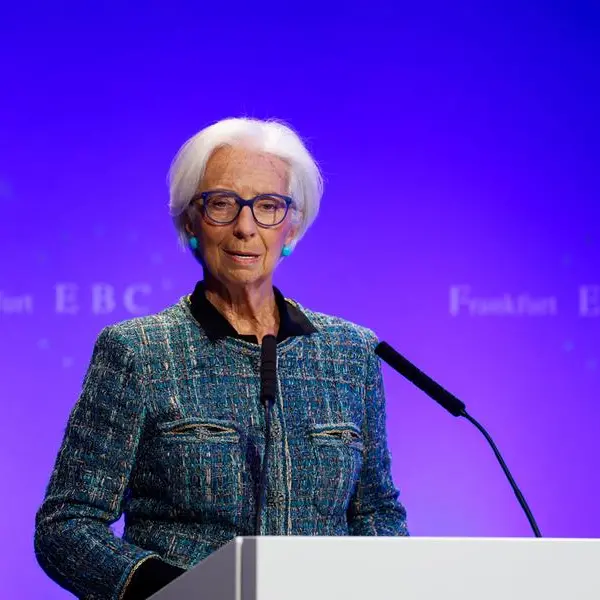PHOTO
The global financial landscape is undergoing a revolutionary transformation, with blockchain technology emerging as a powerful solution to address one of the world’s most pressing economic challenges: providing financial services to the unbanked population. According to the World Bank, approximately 1.4 billion adults worldwide remain without access to basic banking services, leaving them excluded from the formal financial system and unable to participate fully in the global economy. This digital divide has far-reaching consequences, particularly for migrant workers who need to send money back to their families in developing countries.
Traditional banking systems have long failed to serve these underbanked communities due to high costs, complex documentation requirements, and limited infrastructure in remote areas. However, blockchain technology and cryptocurrency are creating new pathways for financial inclusion, offering innovative solutions that bypass traditional banking intermediaries and make cross-border payments more accessible, affordable, and efficient.
The Challenge of Traditional Remittances
The global remittance market represents over $700 billion annually, with millions of migrant workers sending money to support families in their home countries. Yet traditional money transfer services impose significant barriers that disproportionately affect vulnerable populations. Conventional remittance channels typically charge fees ranging from 6% to 10% of the transfer amount, creating a substantial burden for workers who often earn modest wages. These high costs are compounded by lengthy processing times that can leave recipients waiting days or even weeks to receive crucial funds.
Geographic limitations further complicate the situation, as traditional banking services are often unavailable in rural or underserved areas where many remittance recipients live. This forces families to travel long distances to access financial services, adding additional costs and inconvenience to an already expensive process. The complexity of compliance requirements and know-your-customer regulations also creates barriers for individuals who lack formal documentation or permanent addresses.
Blockchain Technology as a Financial Inclusion Tool
Blockchain technology offers a fundamentally different approach to financial services that can overcome many of these traditional barriers. By creating a decentralized network that operates independently of traditional banking infrastructure, blockchain enables peer-to-peer transactions that can reach anyone with internet access and a digital wallet. This technology eliminates the need for multiple intermediaries, reducing costs and processing times while expanding access to underserved populations.
The transparency and immutability of blockchain transactions provide additional benefits for remittance users. Every transaction is recorded on a public ledger that cannot be altered, creating a permanent record that enhances security and trust. This transparency also enables better tracking of funds, giving both senders and recipients confidence that their money will reach its intended destination.
Smart contracts further enhance the blockchain remittance experience by automating many aspects of the transfer process. These self-executing contracts can automatically convert currencies, apply exchange rates, and release funds when predetermined conditions are met, reducing the need for manual intervention and minimizing errors.
Cryptocurrency Solutions for Cross-Border Payments
Various cryptocurrency solutions are already demonstrating the potential of blockchain technology for remittances. Stablecoins, which are cryptocurrencies pegged to stable assets like the US dollar, offer many of the benefits of digital currency while minimizing the volatility concerns that have traditionally limited cryptocurrency adoption for payments. These digital assets can be transferred quickly and inexpensively across borders, then converted to local currency at the destination.
Bitcoin and other established cryptocurrencies also play a role in the remittance ecosystem, particularly in regions where traditional banking infrastructure is limited. The growing network of Bitcoin ATM locations worldwide provides physical access points where users can convert between digital and traditional currencies, making cryptocurrency more accessible to individuals who may not be comfortable with purely digital transactions.
Mobile-based cryptocurrency solutions are particularly promising for serving unbanked populations, as smartphone adoption continues to grow rapidly in developing countries. Mobile wallets can provide a gateway to blockchain-based financial services without requiring users to have traditional bank accounts or extensive technical knowledge.
Real-World Impact and Case Studies
Several blockchain remittance services are already making a tangible impact in underserved markets. In countries like the Philippines, El Salvador, and various African nations, cryptocurrency-based remittance services are providing faster, cheaper alternatives to traditional money transfer operators. These services often charge fees of just 1-3% of the transfer amount, representing significant savings compared to conventional options.
The COVID-19 pandemic accelerated adoption of digital remittance solutions as traditional money transfer locations closed and social distancing measures limited in-person financial services. This crisis demonstrated the resilience of blockchain-based systems and highlighted their potential to provide essential financial services even during disruptions to traditional infrastructure.
In regions with unstable local currencies or limited banking infrastructure, cryptocurrency remittances offer additional stability and reliability. Recipients can hold funds in stable digital currencies until they need to make purchases or convert to local currency, providing a hedge against inflation and currency devaluation.
Overcoming Adoption Barriers
Despite the clear benefits of blockchain remittances, several challenges must be addressed to achieve widespread adoption. Regulatory uncertainty remains a significant obstacle, as many countries have yet to establish clear frameworks for cryptocurrency use in financial services. Education and digital literacy also present barriers, as potential users need to understand how to safely use digital wallets and navigate cryptocurrency transactions.
Infrastructure development is crucial for expanding access to blockchain remittances. This includes not only internet connectivity and smartphone availability but also the establishment of cash-in and cash-out points where users can convert between digital and physical currency. The strategic placement of Bitcoin ATM locations and partnerships with local businesses can help bridge this gap by providing physical touchpoints for digital transactions.
The Future of Financial Inclusion
As blockchain technology continues to mature and regulatory frameworks develop, the potential for cryptocurrency-based remittances to transform financial inclusion becomes increasingly apparent. Central bank digital currencies (CBDCs) may also play a role in this evolution, potentially offering the stability of government-backed currencies with the efficiency of blockchain technology.
The integration of blockchain remittances with other financial services, such as savings, credit, and insurance products, could create comprehensive financial ecosystems that serve previously excluded populations. This holistic approach to financial inclusion could help break cycles of poverty and enable greater economic participation for billions of people worldwide.
Banking the unbanked through blockchain technology represents more than just a technological advancement—it embodies a fundamental shift toward more inclusive and equitable financial systems. As these solutions continue to evolve and gain adoption, they hold the promise of connecting the global economy in ways that were previously impossible, ensuring that geography and economic status no longer determine access to essential financial services.
Copyright © 2022 Nigerian Tribune Provided by SyndiGate Media Inc. (Syndigate.info).



















